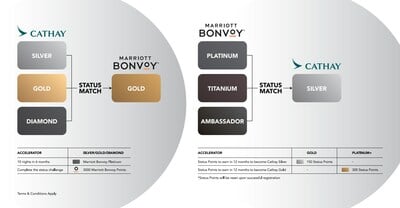Corporate travel buyers are divided as to how the planned merger between United Airlines and Continental Airlines will affect their travel programs, though a clear majority said U.S. regulators should approve the deal, according to a survey of 189 travel buyers.
The 34 percent who viewed the merger in a negative light feared the deal would result in higher fares, smaller corporate discounts, less competition, reduced capacity or degraded service. The more optimistic 30 percent anticipated the emergence of a merged carrier that would provide a broader network, more route coverage and a better corporate negotiating proposition, representing an inevitable step to a financially stable domestic airline industry. Meanwhile, 36 percent expected the merger to have no impact on their travel program.
Among those who expect an adverse impact, perhaps the two most common concerns shared surrounded pricing and capacity. One respondent echoed a common refrain: “More power in the hands of fewer ‘too big to fail’ airlines will reduce competition, reduce buying power for us, increase fees to us,” adding: “Bigger is not better in the airline business for any of us. That’s been demonstrated time and again.”
Continental CEO Jeff Smisek and United CEO Glenn Tilton tried to allay common consolidation fears about pricing. “There is not an airfare increase built into the synergy assumption,” Smisek said, backed up by Tilton’s view that airfares are a function of the market, not merged management. “There is no carrier in the world that can set airfares,” he asserted. “We couldn’t set airfares before this; we couldn’t set airfares after this. We are responsive to demand; we’re responsive to capacity.”
Concerns about reduced capacity, however, are not unfounded. Though United or Continental have yet to disclose route plans, JP Morgan analyst Jamie Baker said the carriers in 2011 likely would cut system capacity by 8 percent.
One respondent spun reduced capacity into a positive: “Though airfares will definitely increase with limited capacity, I believe consolidation is necessary for a healthy airline industry. When this happens, carriers will compete more on service than price, and passengers will benefit with comfort, safety and customer service.”
Continental’s Smisek said the combined airline would be “very attractive to corporate customers,” claiming a merger would “provide the best scope, scale and product in the industry.”
Some buyers agreed. “Greater consolidation of air volume with one supplier could improve our price position,” one respondent said.
Washington, D.C.-based Advisory Board Co. travel buyer Steven Mandelbaum said, “Financially this could be great for us, because I could get citypairs under contract that I didn’t have in the past.”
Continental’s strength in Latin America and Europe with United’s strength in Asia could benefit some corporate travel programs. For example, one respondent expected “increased options for Latin America, where United has not had much of a presence.”
One buyer said the deal could be good or bad news depending on which management team prevails and which culture dominates the carrier’s corporate account management team.
That buyer, who has contracts with both United and Continental and requested anonymity, said Continental excelled in the corporate market compared with United, a sentiment backed up by other travel managers and years of BTN research. Corporate travel buyers have ranked Continental first in BTN’s Annual Airline Survey in five out of the 12 years that BTN has measured satisfaction with airline negotiating and service delivery. Only American Airlines has a better overall performance, topping the survey six times, while United consistently has been in the middle of the pack.
One respondent said, “We feel that Continental is one of the top airlines from a customer service standpoint, with United and US Airways at the bottom of the spectrum. Our concern is this merger will not only negatively impact the already depleted competitive marketplace, but the quality of service of Continental Airlines. If United’s lack of customer care filters over to Continental, we are going to be in trouble.”
Some buyers took the opposite view. “It’s got to mean better service, because you can’t get any worse than United,” Mandelbaum said. “Merging with Continental is likely to give them a better service experience.”
Ingersoll Rand director of strategic sourcing Tom Barrett, expressing a sentiment shared by the pro-merger contingent of BTN’s buyer survey, said, “I believe that this preserves healthy competition. When you realize the airlines are operating at record load factors and they’re still not making money, you know we have a problem.”
WHAT TO TAKE AWAY FROM THIS ARTICLE:
- The more optimistic 30 percent anticipated the emergence of a merged carrier that would provide a broader network, more route coverage and a better corporate negotiating proposition, representing an inevitable step to a financially stable domestic airline industry.
- One respondent said, “We feel that Continental is one of the top airlines from a customer service standpoint, with United and US Airways at the bottom of the spectrum.
- That buyer, who has contracts with both United and Continental and requested anonymity, said Continental excelled in the corporate market compared with United, a sentiment backed up by other travel managers and years of BTN research.






















